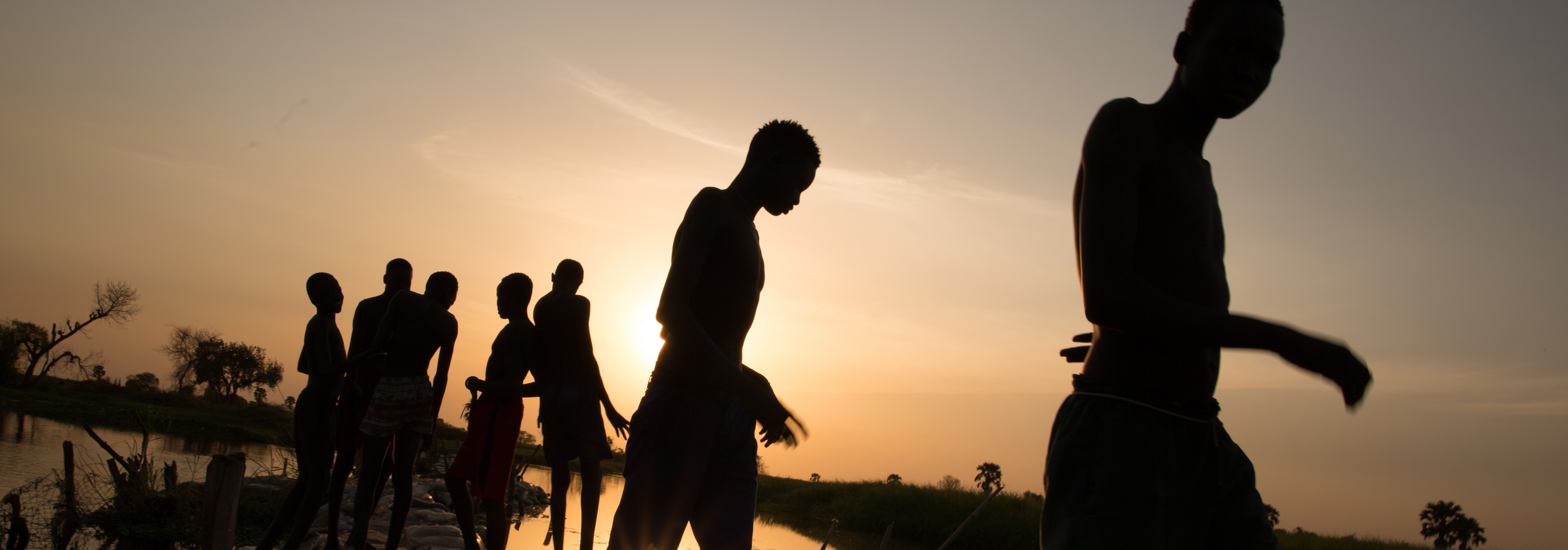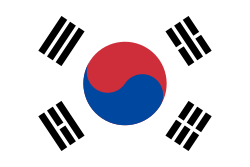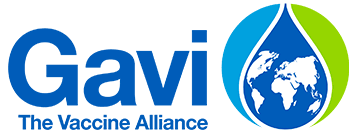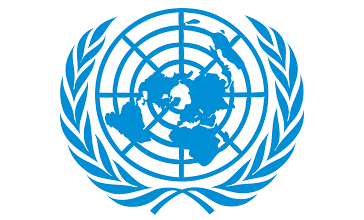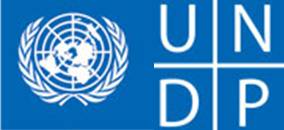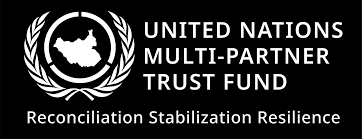IOM Vision
IOM, in partnership with key stakeholders and communities, will continue to support vulnerable people across South Sudan with essential life-saving assistance, whilst creating conducive environments for sustainable returns and recovery. IOM will adopt a community-driven approach to all programming, to facilitate transformative changes that address vulnerability and risks. Tackling these challenges means not only making a positive and lasting impact on the lives of South Sudanese affected by crises, but also supporting the Government in fulfilling the promises of the Revitalized Peace Agreement, creating a base of support for its continued efforts to address potential drivers for future crises.
Objective
Saving lives and protecting people on the move
In 2020, IOM foresees that humanitarian support will be needed for three population groups: (1) IDPs who remain in displacement sites, including in protection of civilian (PoC) sites, for whom IOM will target both protracted and newly displaced populations based on context-specific vulnerability analyses and emergency gaps analysis; (2) IDPs who have returned, many of whom are facing challenges such as limited access to services and livelihood opportunities, damage to property and public infrastructure and fractured social relations; and (3) vulnerable host communities in areas of displacement and return in which services are limited.
IOM is committed to implementing needs-based programming and targeting the most vulnerable. Targeting of beneficiaries will take into account protection concerns based on context-specific vulnerability analyses. IOM will continue to strengthen the capacity of staff and national actors through theoretical and practical training on protection mainstreaming. Additionally, IOM will strengthen the collection, analysis, and use of data to produce protection analysis reports to guide the mission in setting objectives and priorities.
- Vulnerable populations in Bentiu, Malakal and Wau PoCs and Collective Centres have improved access to basic services, camp management and site care and maintenance;
- Communities in hard-to-reach and underserved areas will receive timely camp management mobile responses. In these areas, site assessments will be held, as well as coordination of humanitarian partners, through promoting community self-management and facilitating linkages with community governance structures;
- Populations have increased access to complaints and feedback mechanisms, ensuring IOM’s accountability to affected populations. IOM promotes an inclusive approach to programming to ensure the meaningful participation of all community groups, including women, youth, elderly people and people living with disabilities;
- Community leadership structures have improved capacity and expertise to support wider transition and resilience efforts;
- CCCM partners are supported by enhanced cluster coordination, through co-leading of the national CCCM Cluster and serving as state focal point in Western Bahr el Ghazal, Jonglei, and Upper Nile.
- Priority protection needs of communities are addressed by ensuring that the centrality of protection remains a key priority in all IOM programmes, and close coordination is maintained with key protection partners;
- The capacity of protection actors is increased through the provision of training in collection, analysis and use of primary and secondary data, as well as the production of protection analysis reports to guide the setting of objectives and priorities;
- Gender-based violence (GBV) case management and response services, psychosocial support, and legal counselling services are provided for GBV survivors, including victims of trafficking. s
- Strengthening the safe and ethical provision of clinical care and capacity of multi-sectoral actors involved in referrals and service provisions to assist GBV survivors to recover emotionally, physically and attain justice;
- Legal aid is provided to those facing housing, land and property issues, and to GBV survivors and victims of trafficking;
- Continued coordination with the Protection Cluster and GBV Sub-Clusters at national and sub-national level.
- Conflict-affected populations, including in PoC sites, collective centres, host communities, and hard-to-reach areas, have strengthened access to targeted MHPSS support through the provision of enhanced protection focused response services, such as Psychological First Aid (PFA), individual and family counselling, peer support groups, and referral to specialized MHPSS or social services;
- Families and communities receive support via recreational, cultural and social activities complimented by non-formal learning and small-scale income generating activities;
- Referral pathways exist for MHPSS and GBV. MHPSS and health work closely together and offer a holistic service to persons affected by physical health and/ or mental health problems.
- Underserved and conflict-affected IDPs, returnee and host communities receive integrated emergency lifesaving primary health care, routine immunization, and surveillance and response to disease outbreaks in line with the basic package of health and nutrition services;
- New locations can be reached through Rapid Response Teams, including hard-to-reach areas that could benefit from long term static clinic and health systems strengthening support, as well as mass vaccination campaigns conducted through supplementary immunization activities (SIA) and national immunization days (NID);
- Integrated TB and HIV care and treatment through static teams;
- Severely, acutely sick patients who require in-patient care and treatment are referred to appropriate higher-level health services;
- Provide clinical management of rape (CMR) for survivors of GBV as well as provide health centre staff with GBV awareness training.
- IDPs in PoC sites in Bentiu, Malakal and Wau, as well as collective centres, have adequate access to sater, sanitation and hygiene (WASH) services and are provided with safe drinking water.
- Populations in crisis receive restored access to WASH services through the deployment of IOM WASH Emergency and Preparedness Teams, which will undertake borehole rehabilitation/repair, shock chlorination, hygiene promotion and sensitization, as well as the distribution of water purification products and WASH NFIs, whilst ensuring that GBV-related risks and concerns are taken into consideration in all programming.
- Maintenance through Mobility Tracking of nation-wide coverage information on presence, locations and needs of IDPs and returnees shared with the government and humanitarian actors in an actionable, timely and regular way;
- Strengthen evidence-based decisions and accountable delivery of humanitarian assistance through biometric data management;
- Multi-sectoral needs analysis undertaken through household surveys in coordination with humanitarian partners.
- IDPs, returnees and affected vulnerable non-displaced communities have improved access to basic, safe and dignified shelter and NFI solutions, through in-kind distributions, cash-based interventions and holistic settlement services;
- S/NFI partners receive enhanced support through IOM’s role as the S/NFI Cluster Lead Agency, ensuring an effective and coordinated response, both in serving beneficiaries and providing technical support to partner organizations.
- S/NFI beneficiaries are given the opportunity to meaningfully participate in processes and activities which affect them by ensuring the specialized needs of vulnerable and specific groups are considered throughout the project cycle, and beneficiary safety and dignity is prioritised through adherence to protection and reporting frameworks.
Common Services, Logistics, Core Pipeline – USD 16.5 million
In order to support humanitarian partners in their delivery of humanitarian assistance in South Sudan, IOM has been carrying out the following activities:
- Vulnerable populations have increased access to services and supplies through enhanced coordination and the provision of key humanitarian supplies by humanitarian actors through the management of the S/NFI Common Pipeline and a proportion of the WASH Common Pipeline in South Sudan;
- S/NFI and WASH Clusters supported through prepositioning of crucial supplies in key locations throughout the country under the management of an efficient core pipeline, ensuring swift access to the emergency relief items in a coordinated approach;
- Humanitarian partners receive timely delivery of humanitarian supplies through the IOM-operated Common Transport Service (CTS), a free-for-user service that transports key humanitarian supplies on behalf of humanitarian actors. CTS serves as a critical link in the supply chain, enabling products and materials that arrive from regional and international suppliers to rapidly move onwards to partners located deep in the field;
- Humanitarian and development actors reach is strengthened across South Sudan through the establishment of additional humanitarian hubs, enabling partners to set-up a permanent presence in key strategic locations with a long-term perspective, including deep in the field.
Rapid Response Fund (RFF) – USD 12 million
IOM has been managing the Rapid Response Fund (RRF) in South Sudan since its inception in 2010. The complex and sporadic nature of emergencies in South Sudan, both natural and man-made, necessitates a coordinated and creative funding mechanism to respond. The RRF provides a flexible funding mechanism that enables the immediate disbursement of grants to international and national NGOs (I/NNGOs) responding to the needs of disaster-affected population across South Sudan and in the Abyei Administrative Area, through three-month emergency response projects.
IOM coordinates with a broad network of over 150 I/NNGOs, maintains strategic leadership roles in UN structures, has wide-ranging expertise of humanitarian response in South Sudan, and has a strong presence across the Cluster system.
In 2020, the RRF aims to meet the urgent needs of 500,000 individuals, including host communities, IDPs and returnees. The RRF will strengthen capacity-building efforts for NNGOs, providing sector-specific technical trainings, such as PSEA, proposal writing, monitoring and reporting, safety awareness in the field, and financial reporting. The RRF team will continue monitoring projects and providing supportive supervisory field visits to provide implementing partners with technical recommendations to increase the quality of interventions and to ensure accountability to affected populations.
In 2020, the RRF will continue to respond to acute emergencies across South Sudan with a focus on the following areas of intervention:
- Agriculture and Food Security
- Nutrition
- Health
- Protection
- Shelter / CCCM
- WASH
- Logistics/ Non-food Items
- Humanitarian Coordination / Information Management
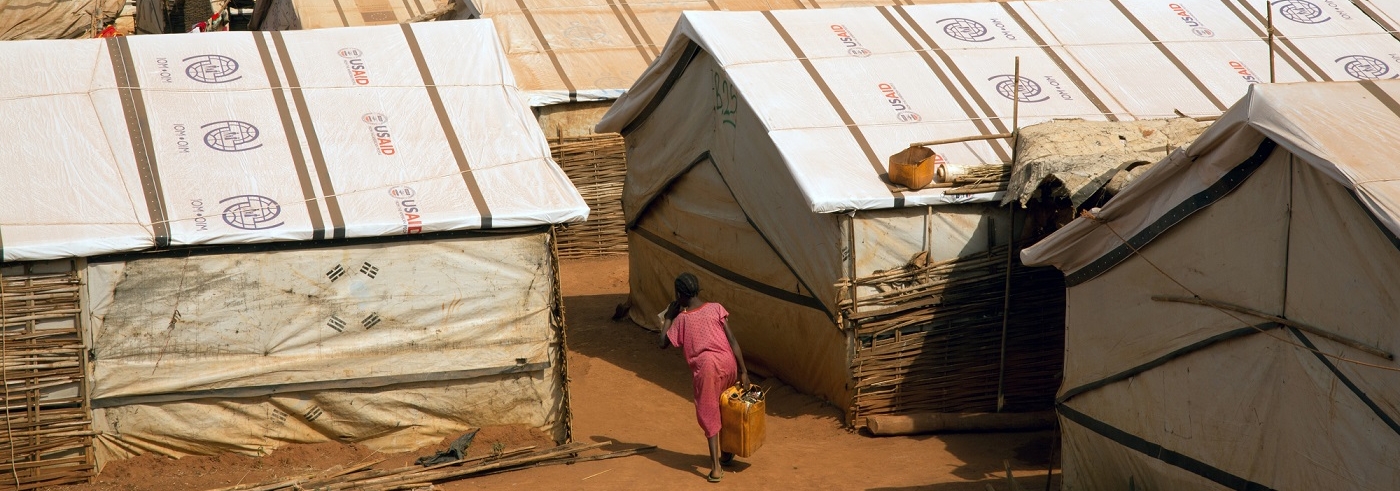
Objective
Driving solutions to displacement
IOM foresees that support will be needed for three population groups: (1) IDPs who remain in displacement sites, including in Protection of Civilians (PoC) sites; for interventions in protection of civilian (PoC) and collective sites, IOM will target both protracted and newly displaced populations based on context-specific vulnerability analyses and emergency gaps analysis; (2) IDPs who have returned, many of whom are facing challenges such as limited access to services and livelihood opportunities, damage to property and public infrastructure and fractured social relations; and (3) vulnerable host communities in areas of displacement and return where services are limited.
Key beneficiaries will include vulnerable communities members such as women and children as well as community leaders, civil society, local authorities and relevant ministries. IOM is committed to implementing needs-based programming and targeting those that are most vulnerable. Targeting of beneficiaries will take into account protection concerns based on context-specific vulnerability analyses.
- Crisis affected populations have improved access to comprehensive health services through strengthened health care systems and health referral networks.
- The health service delivery approach is organized in static facilities, outreach/mobile clinics and Rapid Response Team (RRT) for any kind of health emergencies across South Sudan. The RRT members are based on three main IOM bases (Malakal, Wau and Bentiu) supporting the health services delivery in the statics health facilities run by IOM. Mobile clinics outside POC are supported by the health workers stationed in the static health facilities in terms of monitoring and mentoring of mobile clinics staff. As part of health emergency responses, health workers are selected from the static health facilities for deployment to provide lifesaving health care services. Such RRT deployment will be coordinated with national and state-level partners through health cluster/emergency responders meetings.
- Strengthened resilience of health systems through outreach and static service delivery, capacity building of national non-profit organisations (NNGOs), and support to pharmaceutical supply chain management. To ensure the sustainability and continuity of health care services, IOM Health Rapid Response Teams (RRT) will develop the capacities of county health departments and national NGOs to take over the roles at the end of RRT mission. As part of the health system, IOM works on supporting the county health department in increasing access to expanded programmes on immunization in three counties selected health facilities and catchment community.
- Crisis affected populations will benefit from pilot projects designed to address the lack of ambulance services through the establishment of community referral systems from a patients house to the nearest clinic in two model villages. Intensive community awareness, community dialogue, sensitisation and committee formation will be carried out as appropriate in order to promote ownership, accountability and the use of the referral system.
- Support will be provided to improve relationships between divided communities through community dialogues, reconciliation and social cohesion activities, including between pastoralists and farmers in areas affected by cattle raiding violence;
- IOM will strengthen community-level conflict resolution and prevention mechanisms, including the establishment of early warning systems;
- Support will be provided to help transform harmful and inequitable social and gender norms;
- Support will be provided for the establishment of community-based water management and pasture management groups;
- Violence and tensions will be reduced and social cohesion strengthened at community levels through ‘peace dividend’ projects.
- Expand housing, land and property (HLP) rights-based education to individuals across the country, including comprehensive training in collaborative/alternative dispute resolution (CDR/ADR) methodologies, which will provide community members with tools to settle disputes in a transparent, equitable and accessible manner, without reliance on overburdened and inaccessible court systems. Through widespread education and training, IOM will promote the rights of women and vulnerable people, and ensure all parties are aware of their land rights, as guaranteed by the national law;
- Enhance the capacities of county and payam land councils (a payam is the second-lowest administrative division, below counties in South Sudan), land commissions and relevant ministry offices through trainings on their rights, roles and responsibilities, including land records management, document verification and issuance, and the application of relevant laws and statutes;
- Advance housing, land and property concerns through mainstreamed programming across all IOM interventions, adhering to established HLP due diligence guidelines grounded in “Do No Harm” principles.
- Strengthen the capacity of community leaders, civil society and local authorities to respond pro-actively and pre-emptively to emergent conflicts through coordinated/holistic approaches;
- Improve access to services and public infrastructures, such as clean water and recreational spaces;
- Provide youth (particularly those may be otherwise be involved in livestock-related conflict and urban criminality such as youth gangs) with a sense of inclusion and belonging through livelihoods, educational and vocational training support, alongside the provision of psychosocial support.
- Maintenance of nation-wide coverage information on the presence, locations and needs of IDPs and returnees through mobility tracking, in order to share with the government and international community in an actionable, timely and regular way;
- Provision of infrastructure and service mapping to support humanitarian-development nexus programming to support recovery efforts.
- Ensure that survivors receive effective support such as access to justice, reparations and information about the cause of violations for displacement-related violations;
- Support the rights of conflict-related sexual violence survivors, alongside the provision of support to sustained livelihoods, to strengthen their capacities and longer-term resilience.
- Support will be provided to returnees to enable them to live in safety and rebuild their lives, including through access to education, skills and employability, and entrepreneurship;
- Returnees are provided with an adequate standard of living, including access to adequate food, water, housing, health care and basic education, employment and livelihood opportunities;
- Returnee populations are supported with access to mechanisms to restore housing, land and property or compensation;
- Promote returnees’ participation in community and peacebuilding processes on an equal basis with the host communities.
- Improve the capacities of health workers, protection actors, national and international non-government organizations to provide targeted mental health and psychosocial support (MHPSS) services through capacity building activities and support the application of an integrated MHPSS approach, and in strengthening social cohesion;
- Provide effective coordination of the MHPSS Technical Working Groups at national and state levels (Unity, Upper Nile, and Western Bahr el-Ghazal), advocating for MHPSS under the health cluster and strengthening MHPSS as a cross-cutting issue in the education and protection sectors.
- Support recovery efforts and the creation of conducive environments for sustainable returns, WASH management mechanisms and strengthen governance systems to enable communities to better respond to their needs and endure future shocks;
- Support communities that benefit from manual and mechanical drilling of boreholes, as well as with setting up of solar-powered water yards, whilst supporting the establishment of management structures that are self-sufficient and support small-scale WASH businesses;
- Foster open defecation free communities by supporting community-led total sanitation and hygiene promotion and behaviour changes through the establishment of school hygiene clubs.
Objective
Strengthen preparedness and reduce disaster risk
In 2020, IOM will continue to support the Government of South Sudan’s preparedness and risk reduction efforts by providing targeted support to relevant Ministries and national NGO’s across the country. IOM seeks to build the capacity of relevant ministries and NNGO’s to anticipate and respond effectively to a crisis. By improving the speed and quality of assistance provided, preparedness can make a major difference in saving lives and reducing suffering in South Sudan. An appropriate level of preparedness can also increase the value for money of relief action and ensure that scarce resources are directed to where they will have the greatest impact. For example, IOM will continue to work closely with the Ministry of Health to strengthen health systems to better prevent, detect and respond to complex communicable disease outbreaks and health threats, as well as building capacity of health and social workers.
- Health systems are strengthened to better prevent, detect and respond to complex communicable disease outbreaks and health threats, including through early warning alert response systems. This is done through activities such as conducting regular surveillance through IOM clinics, and support to the Ministry of Health facilities to prevent, early detect, report and respond to any outbreak prone diseases;
- IOM provides capacity building activities to the Ministry of Health and IOM national staff.
- Health workers, protection actors, national and international non-government organizations have improved capacity to provide targeted MHPSS support through capacity building activities to strengthen MHPSS systems;
- Provide effective coordination of the MHPSS Technical Working Groups at the national and state level (Unity, Upper Nile, and Western Bahr el-Ghazal) to support the strengthening of MHPSS systems at both levels;
- Mainstreaming of MHPSS into different sectors;
- Work in close collaboration with the GBV sub-cluster, protection and child protection cluster at the national and state-levels;
- Capacity building of social workers from Western Bahr el Ghazal MoGCSW.
- Ensure that vulnerable communities benefit from WASH interventions that are adaptable and resilient, using context-appropriate technologies and ensuring capacity building for sustained management. For example, IOM will explore cost-effective means of ensuring adequate service provision, through communities' operation and management of water supply hybrid solar systems, biogas and market-based programming.
South Sudan
The map used here is for illustration purposes only. Names and boundaries do not imply official endorsement or acceptance by IOM.
Figures are as of 31 December 2023. For more details of IOM's operational capacity in country, please see the IOM Capacity section.

